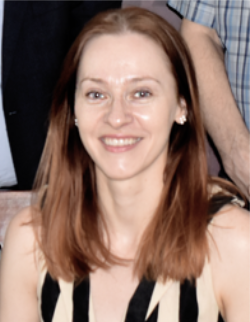MIKON 2024 Workshop
“Microwave and Millimetre-Wave Characterisation of Materials“
The aim of this Workshop is to present state-of-the-art and novel achievements in microwave and millimetre-wave characterization of materials in the 1-130 GHz range with resonant methods. In the first part, measurement techniques in 1 – 30 GHz frequency range will be discussed. The focus will be given to Split-Post Dielectric Resonators (SPDR) and new Split-Cylinder Resonators (Q-SCR) for sheet dielectrics characterisation. Point-wise measurements will be followed with surface imaging of the complex permittivity undertaken with the aid of a fully-automated 2D SPDR scanner. Furthermore, resonant methods for precise characterisation of liquid dielectrics, semiconductors, and copper foils, with their practical applications to real-life engineering problems will be presented. The presentation will feature practical applications of all discussed techniques through recent research results of M.ERA-NET2 ULTCC6G_EPac, M.ERA-NET3 I4BAGS and Eurostars 5G_Foils projects, involving characterisation of emerging ULTCC materials and copper foils facilitating developments of 5G systems as well as novel semiconductor and graphene-based materials for microelectronics and battery systems.
In the second part, the focus will be given to a Fabry-Perot Open Resonator (FPOR) enabling wideband characterisation of materials within 10 – 130 GHz range. Three FPOR solutions will be discussed, namely, FPOR for dielectric sheets, low-loss liquids and conductors. Versatility of the FPOR that combines the accuracy of resonant methods with its quasi-broadband capabilities will be shown. Basic FPOR features including measurement limitations will be thoroughly explained with practical hints on how to proceed with the measurement to get accurate results with good repeatability.
The discussion undertaken throughout the workshop will be focused on the main features of the presented characterisation methods, their advantages and limitations as well as practical measurement aspects. Error and uncertainty budgets of all techniques will be discussed in details. In particular, it will be shown how the thickness and Q-factor uncertainties affect dielectric constant and loss tangent uncertainties.
In addition, recent efforts of the iNEMI consortium on benchmarking most popular methods for characterisation of dielectric materials, developing a traceable standard for complex permittivity, which could serve the industry as a reference material for calibrating high-frequency dielectric characterisation tools, and activities directed towards developing a comprehensive roadmap on 5G/6G materials and electrical test technology will be discussed. The iNEMI consortium gathers standardisation institutes, equipment vendors, materials developers, and end-users from various industries worldwide, running round-robin activities identifying gaps in today’s technology and technical challenges of implementing next-generation 5G/mmWave and 6G systems.
Presentations will be followed with an extensive hands-on training, giving unique opportunity of gaining practical insight into material characterisation with SPDRs, FPORs and other, as given directly by their vendors and developers. This session will feature operation with both vector network analyser and portable microwave frequency Q-Meters serving as a cost-efficient replacement for the former one. The attendees are encouraged to bring their own materials under interest. For more info on sample preparation please contact: molszewska@qwed.eu.
Workshop Agenda
| 9:00 | Introduction to the Workshop |
| 9:10 |
Material characterisation with resonant methods in 1-30 GHz frequency range Marzena Olszewska-Placha, QWED Sp. z o.o., Poland |
| 9:50 | Break |
| 9:55 |
Material characterisation with a Fabry-Perot open resonator in 10-130 GHz frequency range Bartlomiej Salski, Warsaw University of Technology, Institute of Radioelectronics and Multimedia Technology, Poland |
| 10:35 | Break |
| 10:40 |
Developing good practices and standards for material characterisation for 5G & 6G technologies Lucas Enright, National Institute of Standards and Technology, USA, Colorado School of Mines, USA |
| 11:20 | Lunch Break |
| 11:50 |
Hands-on session with real-life fixtures for material characterisation Marzena Olszewska-Placha, QWED Sp. z o.o., Poland Bartlomiej Salski, Warsaw University of Technology, Institute of Radioelectronics and Multimedia Technology, Poland |
| 13:50 | Questions & concluding remarks |
Presenters:

Dr. Marzena Olszewska-Placha
Dr. Marzena Olszewska-Placha is QWED (www.qwed.eu) Research Engineer since 2010 and since 2021 its Vice-President for Research and Development. She received the B.Sc., M.Sc, and Ph.D. (2014) degrees in the fields of waveguide filters, double reflector antennas, and graphene-based composite absorbing panels, from the Warsaw University of Technology (WUT). She participated in several research and industrial projects concerned with modelling and applications of graphene composites, antennas for SATCOM applications, applicators and systems for microwave heating, and materials characterization techniques. Her current focus is on microwave characterization of materials, including exploitation of QWED commercial products. She is author of 11 journal articles and 48 conference presentations with over 327 citations, 3 book chapters and one patent (on microwave absorbers).
Prof. Bartłomiej Salski
Prof. Bartlomiej Salski received the Ph.D. and D.Sc. degree in microwave engineering from the Warsaw University of Technology (WUT), Warsaw, Poland, in 2010 and 2015, respectively. He has been a University Professor at WUT since 2018. He is one of the founders and CEO of the EMArges company, which specializes in microwave characterization of materials and developed their flagship product, namely, Fabry-Perot open resonator. He is one of the founders and CEO of the Microwave and Radiolocation Foundation MIKON organizing international conferences in Poland and neighboring countries.
In 2015-2018 period, he was a recipient of a Scholarship for the Outstanding Young Scientists of the Ministry of Science and Higher Education. He received the Award of the 4th Department of the Polish Academy of Sciences in 2016 and several awards granted by the Rector of WUT for scientific, academic and organizational achievements. His research interests include electromagnetic modelling and microwave characterization of materials. He is the author of over 70 papers in peer reviewed journals and well over 120 conference papers with over 1170 citations according to Google Scholar. He is a member of IEEE.
Lucas Enright
Lucas Enright joined the Colorado School of Mines in Golden, Colorado, USA as a graduate student in 2020 and the National Institute of Standards and Technology in Boulder, Colorado, USA as a graduate research associate in 2021. His work focuses on measuring and developing standards for material properties at millimeter-wave frequencies (30 GHz – 300 GHz)..
